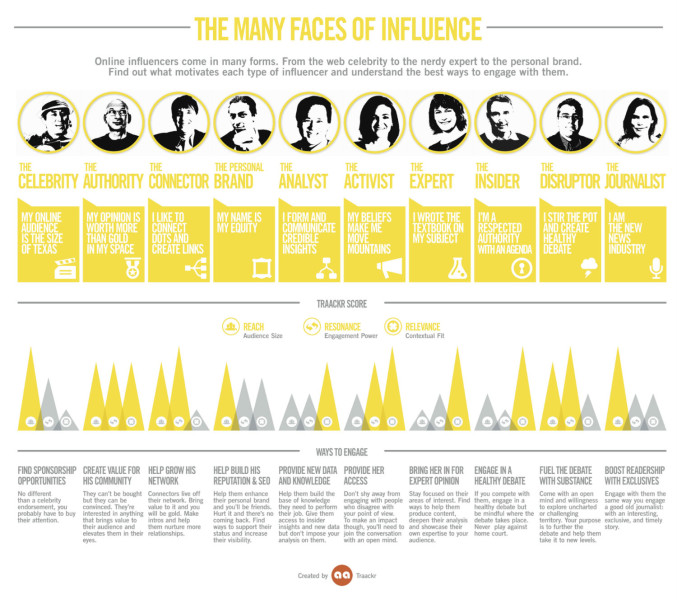Why The Quality Of Your Data Is Crucial For Content Marketing In 2015
Columnist Jim Yu of BrightEdge argues that with all the data available to us today, marketers should no longer be guessing at what works based on gut instinct.

Do you know what content your target audience wants to read — and where they want to read it? If the answer is no, you’re not obtaining enough of the right kind of data.
Faced with loads of data, the modern marketer simply does not have time to sift through it all — the hundreds of potential metrics, the trends in content, and the changes to search algorithms — in order to stitch together a story that illustrates what their brand’s audience really needs.
The key is obtaining the right data without putting in exorbitant amount of time to do so. Let’s examine this issue a bit more closely.
Obtaining The Right Kind Of Data
Data from Cisco predicts that in North America alone, IP traffic will reach 40.5 Exabytes per month in 2018, up from 16.6 Exabytes per month in 2013. That’s a lot of data to contend with.
Sometimes, mounds of data lead brands to have analysis paralysis, which tends to make marketers approach data half-heartedly in one of the following ways:
- They don’t really gather data at all, instead making decisions based on experience and “gut” feelings. In fact, about 20 percent of companies surveyed by CMOSurvey.org in 2014 said they relied on manager judgment to measure marketing ROI.
- They stitch together a toolkit of multiple analytics providers, each measuring a different aspect of the marketing program, without integrating the data points together to see the whole picture.
- They use a good analytics platform, but they don’t configure it to meet their unique needs — or they rarely touch it because it’s too intimidating to learn a new piece of software.
Out of those three approaches, the most crippling is most likely No. 2: relying on fragmented data.
One of the most efficient ways to deal with big data in our marketing programs is to allow the machines to pull it all in from multiple sources (all the channels and media that matter to your content), make sense of it for you, and output it in a language a marketer can understand and act upon.
The right analytics platform should not only be able to integrate multiple data points, but also should make recommendations via machine learning, offering predictions for your next move based on learning from previous data. In short, the platform is making decisions versus just following instructions.
This type of data is crucial for those who want to lead in content marketing in 2015 — especially on the organic search side, where it’s a zero sum game. So, consider evaluating the quality of your analytics this year.
If you haven’t done this previously, you’re not alone. In fact, 67 percent of executives surveyed by CMOSurvey.org in 2014 said their company did not formally evaluate the quality of their marketing analytics.
And what that research is really telling us is that it’s certainly not too late to get a leg up on the competition with the right data.
Understanding The Demand For Content
Today, content marketing succeeds through a balance of the old and new — the old method of relying on experience and wisdom coupled with the new methods of data collection.
Rather than relying solely on a basic understanding of your audience, data exist today that tell us not only what topics are driving demand, but which content types are the highest performing, what has historically worked, what topics are trending in real-time, and how you stack up against your competition’s content.
These data are creating a shift in the industry to move companies simply from content marketing to content performance marketing.

Once we obtain this data, we can begin to map the content type and message to the individual, rather than the old say-and-spray method where the communication serves as a catch-all for every important segment of your audience.
The following infographic from Traackr reminds us that there are a multitude of potential personas we market to (and this segment, the influencers, only represents one side of a vast audience brands must communicate with):
Take note: Personalized marketing is not going away. As data algorithms in search engines, social media platforms, and email marketing platforms continue to evolve to offer the most relevant experience for every person they touch, so must brands with their communications.But, take comfort in knowing that even the leading brands still struggle with delivering personalized content, and a majority of them cite the lack of data integration as the reason why.
Knowing The Impact In 2015
When you make quality data a priority, you gain insights beyond the face value of what your gut is telling you, or what trends are occurring in content, or even the potential impact that any given search algorithm has on your content’s ability to perform on the Web.
Shooting in the dark can only work for so long. Frankly, with the options we have today for uncovering meaningful data, there’s no reason any leading brand should have to guess at what’s working anymore.
So in 2015, make meaningful data a priority, so your content is more meaningful in the eyes of your target audience.
Contributing authors are invited to create content for MarTech and are chosen for their expertise and contribution to the search community. Our contributors work under the oversight of the editorial staff and contributions are checked for quality and relevance to our readers. MarTech is owned by Semrush. Contributor was not asked to make any direct or indirect mentions of Semrush. The opinions they express are their own.
Related stories
